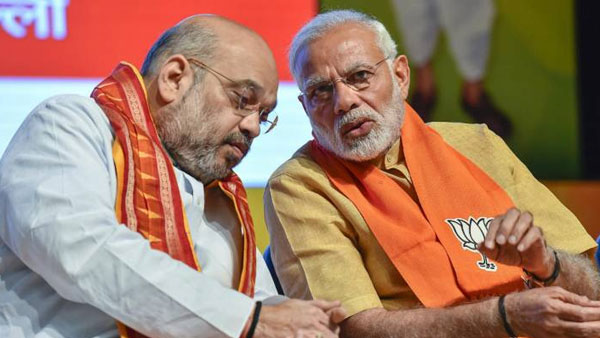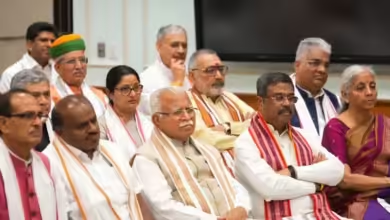
Why UP Rejected Modi: Analyzing the Fall In BJP Tally in Yogi’s State
In this general election, the BJP was badly defeated in Uttar Pradesh, the state that has the highest number of parliamentary seats (80) in India. Usually, the party that wins the maximum number of MP seats in UP holds the reins of power at the Centre. But in this election, the BJP won 33 seats in that state and, with the support of allies in other states, is ready to form the government. During the campaign, the BJP claimed they were moving ahead with the agenda of peace and security, development, and Hindutva. This time, however, the double-engine strategy did not yield results. Now, there is introspection within the BJP regarding where they faltered.
Did Kejriwal Dent BJP Seats?
Yogi Adityanath led the party to victory in four elections in the state, including the 2022 Assembly, 2019 Lok Sabha, and two local body elections. The BJP won in all these. This time, there are criticisms that local opposition to the candidates was not considered in the allotment of tickets, which became a strong reason for the party’s defeat in the state. Yogi Adityanath appears to have left the allocation of tickets entirely to the central leadership. When the Delhi CM came to Lucknow in the middle of the elections, he claimed, “After BJP wins, Yogi will be removed like other BJP CMs”. There was a campaign suggesting that voting for the saffron party would mean giving up their favourite chief minister. This led to confusion within the party ranks, and there was no firm counter from the BJP.
Also Read: Narendra Modi Set to Become 2nd PM After Nehru to Secure Third Term
Has BSP’s Erosion Helped SP?
Issues like the financial burden on farmers, inflation, unemployment, and opposition campaigns against Agniveer have generated opposition to the BJP in many places. Trends show that minority votes in UP have gone to the opposition parties this time. About 85 percent of Muslims voted for the Congress-Samajwadi Party, while only 6 percent voted for the BJP. The party is struggling to digest its defeat in Ayodhya (Faizabad), where the Ram temple was built. Despite giving a positive end to the Ayodhya movement, which gave life to the BJP, SP candidate Awadhesh Prasad won. Moreover, the weakening of the BSP in UP has also benefited the Congress-Samajwadi alliance. Although the BSP did not get seats in 2014, it recovered in 2019 and won 10 seats, forming an alliance with the Samajwadi Party at that time. However, this time, standing alone, it could not maintain the previous 19 percent votes and was limited to single digits. The Congress-Samajwadi alliance strongly promoted the issue of reservations among the people. As a result, BSP votes shifted to them, and the vote percentage of the India alliance in the state reached 40 percent.





mexico pharmacy: mexico pharmacy – buying prescription drugs in mexico
mexico drug stores pharmacies
https://cmqpharma.com/# medicine in mexico pharmacies
medicine in mexico pharmacies